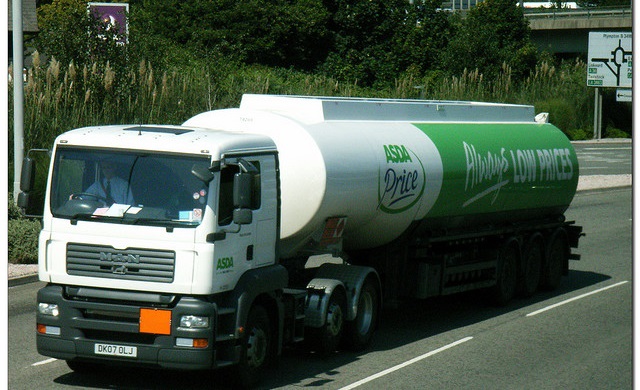Seven years ago the selling of imported bicycles to British retailers, large and small, accounted for about 60% of Tandem’s (LSE:TND) turnover. However, selling bikes was often unprofitable, so the managers gradually reduced activity here. Today this part of the Group accounts for less than one-fifth of Group turnover having slipped from £17m to approximately £6m.

This shift makes sense: the managers were busy fools for many years running around trying to sell cheap bikes to retailers who possessed a high degree of buying power – naturally, organisations such as Halfords would only buy if the price was cut to the bone.
Tandem presents bicycles and its mobility scooters sales together. This now totals to an estimated £8 – £9m. There is something like £3m turnover (an informed guess derived from past numbers) in mobility scooters and items with a common theme such as electric golf carts and electric bikes.
That leaves only £5 – £6m for bicycle revenue. But at least those bike sales are “profitable” at the operating level (we are not given numbers). One of the reasons for a return to profits in bikes is the recent introduction of a cleverly branded and designed children’s lightweight bike, “Squish”.
A second reason is a focus on cutting costs, with around £1m eliminated from overhead in 2017 by combining bike warehousing for a variety of brands in Scunthorpe and gaining synergies in product design and sales functions (in Castle Bromwich).
It’s notable that while other parts of the business were growing the bicycle section was shrinking to such a degree that employee numbers across the Group went from 101 in Dec 2016 to 91 in Dec 2017, and employee remuneration (including directors) fell from £4.4m to £3.8m.
A third reason seems to be a greater reluctance to run after the big retailers to gain volume with little regard to profits.
In their strategy statement the directors no longer give the bicycle operations the prominence they once did. There is quite a mix of products now: “We continue to seek to maintain our position as a leading distributor to the UK sports, leisure, bicycle and toy markets and as an online retailer in the sports, leisure and mobility markets. We will achieve this by continuing to develop new and interesting product ranges which offer both quality and value to the consumer.” (2017 Report)
Also, across the Group they now have two routes to market (1) selling to retailers, (2) selling directly online, making them less dependent on retailers. (Having said that, the alternative of online sales has limited applicability to bicycles because consumers do like to touch and test a bike in the shop).
A fourth reason is obtaining better prices from suppliers across the Group:
“There was a strong focus during the year to improve our gross margin. A number of the measures that we began to implement towards the end of 2016 were successfully carried forward into 2017 in the following key areas:
- We were able to achieve better supplier buying prices for a number of products;
- Where this could not be achieved, products were re-sourced or discontinued;
- In accordance with our ongoing product development programmes, a considerable number of new products were introduced across the Group during 2017; and
- There was a greater concentration on more profitable product lines.
These objectives were achieved despite the ongoing adverse impact of the US dollar during 2017 and major customers continuing to exert significant pricing pressure on the Group.” (2017 Report)
The electric boost
In 2014 Tandem bought Pro Rider Mobility, which sources its products mostly from Asia and sells mostly to UK customers through its two showrooms (Northampton and West Bromwich, where Tandem’s head office is) and online.
Before being bought, Pro Rider traded online and from showrooms in Loughborough (since closed) and Northampton, and sold scooters, trolleys, electric wheelchairs and reclining chairs.
Tandem paid £2.58m for the company, which made a profit of £0.3m in the year to February 2013 (similar to 2014) on a turnover around £3m. It had 13 members of staff. The combining of Tandem and Pro Rider was motivated by buying and sourcing synergies. Also, website design and other marketing economies would flow.
Managing Director and sole shareholder Simon Betts remained with the business within the Tandem Group as a director until August 2016. I’ll be interested in finding out why he is no longer with Tandem – anyone know?
From 2014 to 2016 Tandem presented the figures for bikes and mobility scooters together, which is what I’ve done in the table. Pro Rider, the limited company, has now become Expressco Direct which incorporates the E.S.C. business acquired in 2015 – see tomorrow’s newsletter – but Tandem retains the distinctive brand of Pro Rider to present to customers.
I’ve had to make informed guess for 2017 and 2018 because the company no longer publishes data for bicycles and mobility as a division.
| BICYCLES and MOBILITY | 2018 Est. | 2017 Est. | 2016 | 2015 | 2014 | 2013 | 2012 | |||||||
| Revenue | 8-9 | 10 | 11 | 15 | 16 | 15 | 17 | |||||||
| Segment result before corporate charges | 0.1 | 0.9 | 0.9 | 0.5 | 0.8 | |||||||||
| Allocation of corporate charges | -0.4 | -0.3 | -0.3 | -0.2 | -0.4 |
………………To read more subscribe to my premium newsletter Deep Value Shares – click here http://newsletters.advfn.com/deepvalueshares/subscribe-1

 Hot Features
Hot Features












